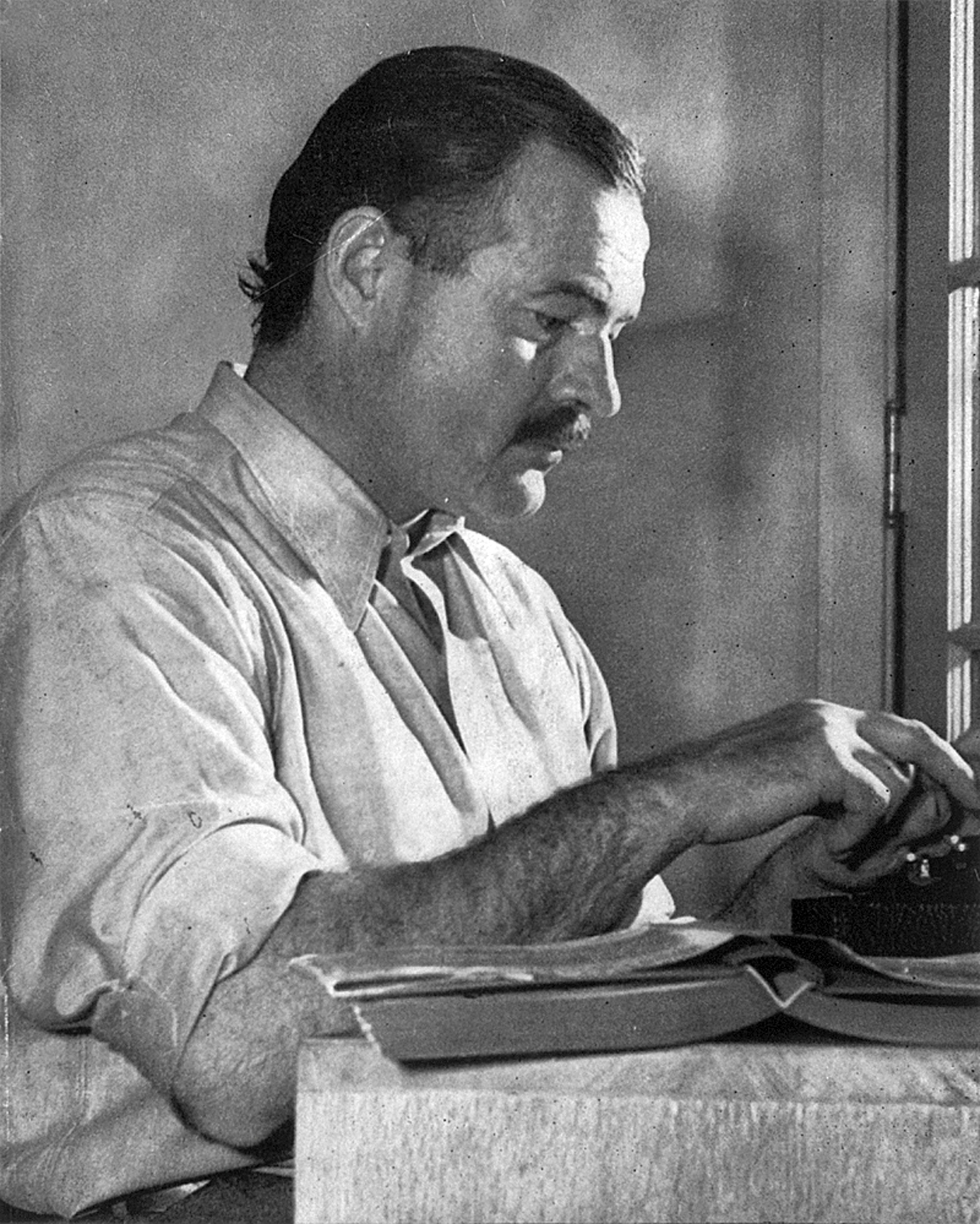Introduction to Treasury of the Free World (1946)
Ernest Hemingway Quotes
“It’s his sense of self-preservation.’ ‘The great Italian sense.’ ‘The greatest Italian sense.”
"Che ti dice la Patria?" in Men Without Women (1927)
Source: A Farewell to Arms (1929), Ch. 15
One of the alternative endings to the novel, published in A Farewell to Arms The Special Edition.
A Farewell to Arms (1929)
Letter to F. Scott Fitzgerald (1 July 1925); published in Ernest Hemingway: Selected Letters 1917–1961 (1981) edited by Carlos Baker
A Letter from Cuba (1934)
Source: Death in the Afternoon (1932), Ch. 10
Pt. 1: Bimini, Section 8
Islands in the Stream (1970)
Part 3, Ch. 2
The Torrents of Spring (1926)
Source: The Dangerous Summer (1985), Ch. 9
“Courage is grace under pressure.”
Hemingway's famous phrase in a letter to F. Scott Fitzgerald (20 April 1926), published in Ernest Hemingway: Selected Letters 1917–1961 (1981) edited by Carlos Baker. In the letter, he wrote that he was "not referring to guts but to something else." The phrase was later used by Dorothy Parker in a profile of Hemingway, "The Artist's Reward," in the New Yorker (30 November 1929)
http://www.quotecounterquote.com/2017/07/hemingways-grace-under-pressure.html
Source: A Moveable Feast (1964), Ch. 1
Luis Miguel Dominguin was another famous bullfighter and friend of Hemingway's.
Source: The Dangerous Summer (1985), Ch. 10
“For our dead are a part of the earth of Spain now and the earth of Spain can never die.”
"On the American Dead in Spain", New Masses (February 14, 1939)
Pt. 3, Ch.12
Papa Hemingway (1966)
“Only three things in my life I've really liked to do - hunt, write and make love.”
Pt. 2, Ch. 5
Papa Hemingway (1966)
Source: The Dangerous Summer (1985), Ch. 9
Source: For Whom the Bell Tolls (1940), Ch. 13
Nobel Prize Speech (1954)
Preface to The Great Crusade (1940) by Gustav Regler
Hemingway is describing his friend, the famous bullfighter Antonio Ordóñez.
Source: The Dangerous Summer (1985), Ch. 3
A Letter from Cuba (1934)
“In the fall the war was always there but we did not go to it any more.”
"In Another Country" in Men Without Women (1927).
"On the American Dead in Spain", New Masses (February 14, 1939)
Pt. 1: Bimini, Section 10
Islands in the Stream (1970)
Paris Review interview (1958)
As quoted in Charmed Circle: Gertrude Stein & Co. (1974) by James Mellow
Letter to F. Scott Fitzgerald (15 September 1927); published in Ernest Hemingway: Selected Letters 1917–1961 (1981) edited by Carlos Baker
Part I, Ch. 1
Green Hills of Africa (1935)
Source: For Whom the Bell Tolls (1940), Ch. 13
The Old Man and the Sea (1952)
Pt. 1, Ch. 4
Papa Hemingway (1966)
Letter (21 February 1952); published in Ernest Hemingway: Selected Letters 1917–1961 (1981) edited by Carlos Baker
“All good books have one thing in common — they are truer than if they had really happened.”
Pt. 2, Ch. 7 - Similar to his remark in "A Letter from Cuba" (1934)
Papa Hemingway (1966)
Source: A Moveable Feast (1964), Ch. 5
Letter to his family (18 October 1918); published in Ernest Hemingway: Selected Letters 1917–1961 (1981) edited by Carlos Baker. It was also published in The Oak Parker (Oak Park, IL) on 16 November 1918. Only 19 years old at the time, Hemingway was recovering from wounds suffered at the front line while serving as a Red Cross volunteer.
Source: True at First Light (1999), Ch. 1
the lowest thing I can think of at this time
Letter (20 March 1953); published in Ernest Hemingway: Selected Letters 1917–1961 (1981) edited by Carlos Baker
Notes on the Next War (1935)
Pt. 3: At Sea, Section 19
Islands in the Stream (1970)
On his short story A Clean, Well-Lighted Place. Pt. 2, Ch. 9
Papa Hemingway (1966)
Luis Miguel Dominguin had undergone surgery after being wounded in a bullfight. From the context it is clear that his remark about Hemingway was a joke.
Source: The Dangerous Summer (1985), Ch. 10
“The way to learn whether a person is trustworthy is to trust him.”
Pt. 2, Ch. 6
Papa Hemingway (1966)
“[T]he rain was making the finest sound that we, who live much outside of houses, ever hear.”
Part III, Ch. 1
Green Hills of Africa (1935)
As quoted in That Summer in Paris (1963) by Morley Callaghan
